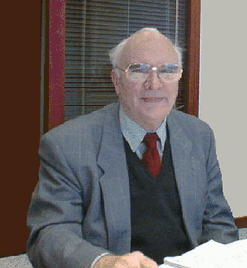
Arthur Roger Thatcher, CB (22 October 1926–13 February 2010), commonly known as Roger Thatcher or sometimes as A. Roger Thatcher, was a British statistician. He was Registrar General for England and Wales and Director of the Office of Population Censuses and Surveys. He spent much of his time researching centenarian demographics and projections, and is credited with validating over 40 supercentenarian cases.[1][2]
Biography
Thatcher was born in Birmingham and spent his formative early years in Wilmslow, Cheshire. He attended The Leys School in Cambridge and went on to university at St John's College, Cambridge, where he concentrated his studies in statistics, economics, and mathematics. After brief training in meteorology as part of his national service, he instructed Royal Navy pilots in weather patterns. He married his wife Mary in 1950; they had two children.
He served in the North Western Gas Board before moving into the area of government statistics in 1952. He worked for the Admiralty and then Central Statistics Office, where under Lionel Robbins he worked on the Robbins Report. By 1971 he was deputy director of statistics for the Ministry of Labour, and wrote British Labour Statistics: Historical Abstract 1886–1968. He became director of the Department of Employment and Productivity, serving under leaders including William Whitelaw, 1st Viscount Whitelaw, Barbara Castle, Baroness Castle of Blackburn, and Michael Foot.
He became registrar general for England and Wales and the director of the Office of Population Censuses and Surveys in 1978.[3] He worked on the 1981 census in the United Kingdom and reported directly to Prime Minister of the United Kingdom Margaret Thatcher, who had him remove three questions from the census to trim it down. He became interested in research into centenarians in this role, and found in 1981 that their numbers in the United Kingdom had increased significantly from prior 1971 data. He served as director at the Office of Population Censuses and Surveys until 1986.
Thatcher compiled research into population data and centenarians and contributed a significant body of scholarly work in addition to his government statistics duties. He predicted a good number of those born during the post–World War II baby boom would live beyond the age of 116. His work on the Kannisto-Thatcher Database on Old Age Mortality is held by the Max Planck Institute for Demographic Research and regarded as one of its most vital collections. The Journal of the Royal Statistical Society called him one of the "stalwarts" within the field of statistics. He died in 2010 at the age of 83, and remained active within his field of academia corresponding with other scholars until shortly before his death.[4]
References
- ↑ Yahoo WOP Message
- ↑ GRG Table B
- ↑ The London Gazette: no. 47519. p. 4732. 24 April 1978.
- ↑ Roger Thatcher obituary The Guardian
